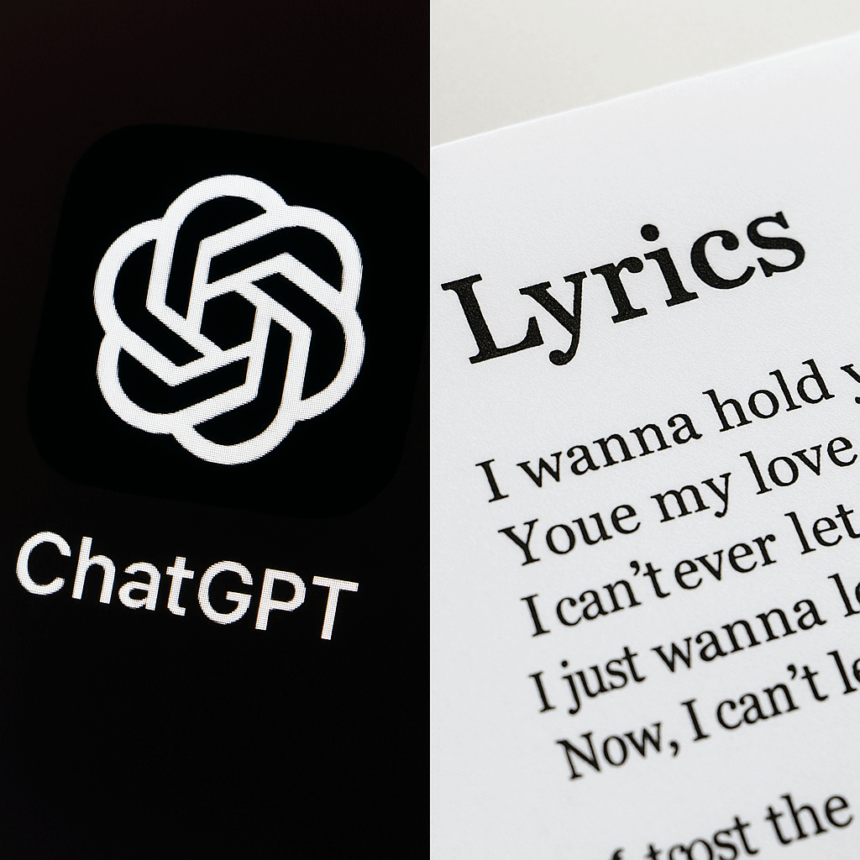Germany Draws the Line Between AI and Art
A German court told OpenAI that creativity still comes with a price tag. In a landmark decision, the court ruled that ChatGPT and similar AI tools must pay to use copyrighted song lyrics. The ruling follows a case brought by GEMA — Germany’s powerful music rights organisation — accusing OpenAI of unlawfully using song lyrics in its training data.
Judge Elke Schwager sided with GEMA, stating that OpenAI owes licensing fees and damages for reproducing copyrighted lyrics. The ruling is the first of its kind in Europe and could redefine how AI companies handle creative material in their training processes.
What’s Happening & Why This Matters
The Case That Hit a Global Chord

The dispute centres on lyrics written by nine popular German songwriters, including Kristina Bach and Rolf Zuckowski. GEMA argued that ChatGPT memorised and reproduced large sections of these songs when prompted by users. In short, the chatbot didn’t just paraphrase — it sang too close to the original tune.
OpenAI countered that its models don’t store data directly, claiming that any lyrical output stems from user interaction, not model memory. The court disagreed.
“The defendants, not the users, are responsible for this,” the ruling stated. “The language models significantly influenced the outputs; the content of those outputs originates from the models themselves.”
That sentence changes everything. It makes AI developers legally accountable for what their systems generate — not the users asking questions.
A European First for AI Copyright Law
For Europe, this decision is a big deal. It’s the first major copyright case to successfully challenge an AI company for reproducing protected works. It sets a legal precedent under EU copyright law, establishing that training and output generation are not exempt from licensing obligations.

Kai Welp, GEMA’s General Counsel, called the verdict a “milestone for fair remuneration,” emphasising that creators deserve compensation when AI learns from their work.
GEMA represents over 95,000 German songwriters and two million global rights holders, giving it serious leverage in the global music industry. The group even launched an AI licensing program in 2024, inviting tech companies to train legally on its song catalogue — for a fee.
This case shows what happens when companies skip that step.
OpenAI’s Response: Damage Control and Denial
In an email to Euronews Next, an OpenAI spokesperson said the company disagrees with the decision and is considering an appeal.
“The decision is for a limited set of lyrics and does not impact the millions of people, businesses, and developers in Germany who use our technology daily,” the company said.
OpenAI insists it respects creators’ rights and is already engaging with global rights organisations to find fair licensing solutions. Still, the court’s message is clear: good intentions don’t replace legal compliance.
If the ruling stands, OpenAI could owe hundreds of thousands of euros in royalties and penalties—just for a few songs. And other lawsuits may follow. GEMA has already filed a parallel suit against AI music generator SunoAI, claiming similar misuse of its catalogue. That trial begins next year.
The Bigger Picture: AI Meets Copyright Law
The verdict notes the mounting tensions between AI innovation and intellectual property protection. Innovation companies argue that training on public data is essential for progress. Artists counter that their work isn’t “public domain” just because it’s online.
For musicians and rights groups, this case is a win for artistic ownership in the age of algorithms. For OpenAI, it’s a wake-up call: training data has a cost, and Europe’s courts are willing to enforce it.
Expect ripple effects across the continent. Other collecting societies — like SACEM in France and PRS for Music in the UK — are already exploring legal strategies to secure royalties from AI models.
TF Summary: What’s Next
Germany’s ruling against OpenAI sets a new tone for the AI accountability era. As courts and creators demand transparency, AI companies face a choice: pay for creative data — or build models without it.
MY FORECAST: Expect a wave of licensing negotiations between AI firms and rights organisations. Those who cooperate will shape the new rules of engagement. Those who resist will face costly lawsuits. Either way, Europe just made it clear: AI can’t hum someone else’s tune for free.
— Text-to-Speech (TTS) provided by gspeech


